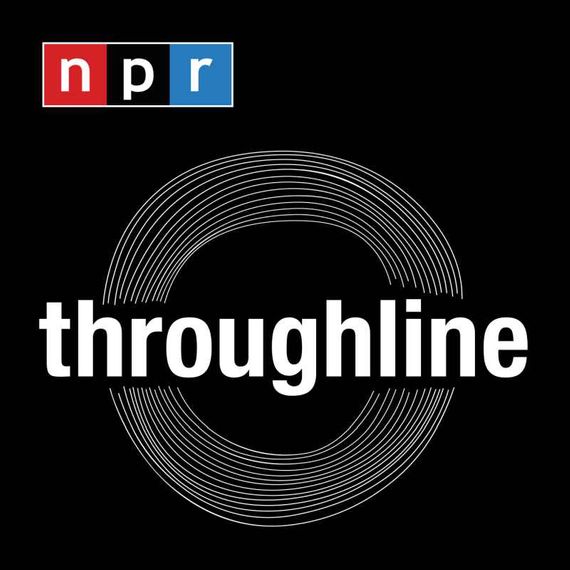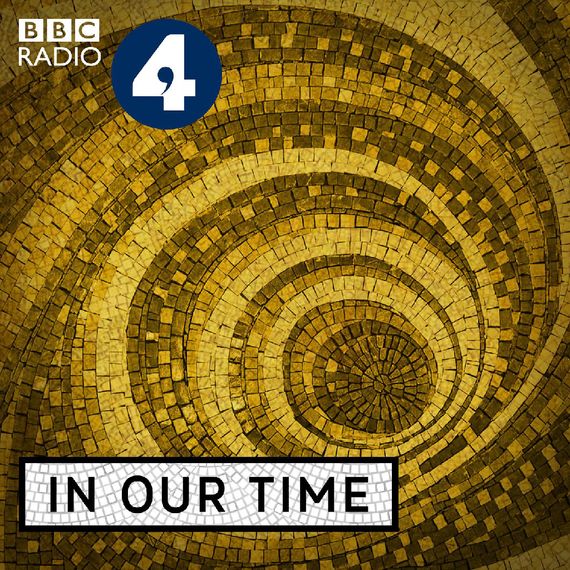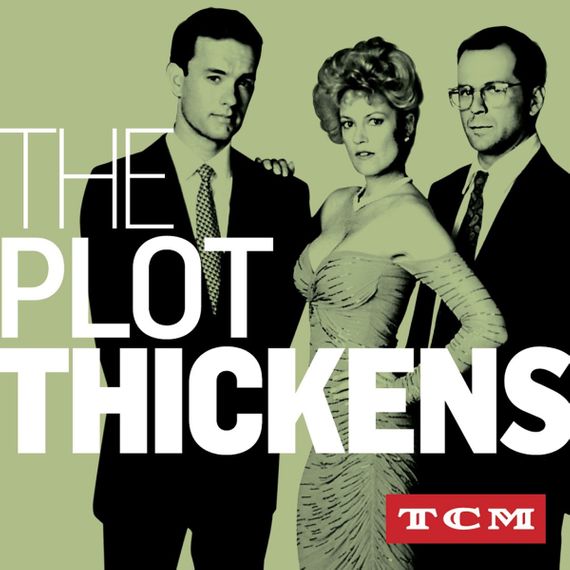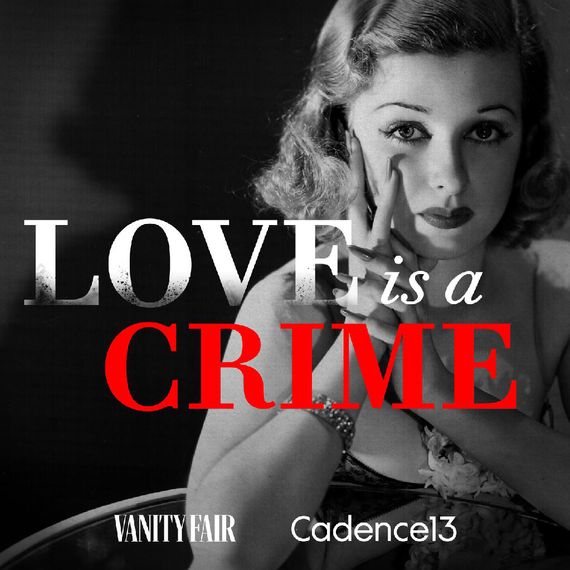
In 1946, Robert John Landry — who wrote extensively about the radio business and who had a very long career at Variety, where, among other things, he established the radio review department — published a piece titled “The Improbability of Radio Criticism,” where he lamented the state of radio criticism for a few different reasons. He took issue with the fact that, at the time, radio wasn’t typically allotted the same prestige and respect as other art forms by the major newspapers. He worried that the state of media consolidation was such that critics were increasingly placed in the awkward situation of having to criticize things created by their own corporate overlords. He was concerned about the viability of the profession, because criticism is often very hard work that doesn’t always allow for a living in it.
Also, there were way too many radio shows. Landry wrote:
The radio critic’s task is complicated by the stupendous range of radio programs. It is not enough to specialize in radio drama. There is also music, debate, current events, quizzes, and that weird fusion of arts — the cantata.
With the exception of what I presume to be the historical popularity of the cantata, it’s striking to me just how little distance there seems to be between Landry’s complaints about the state of radio/radio criticism and today’s complaints about the state of podcasting/podcast criticism. Which is to say: Podcasting doesn’t get enough respect; almost every media company makes podcasts now (including New York Magazine and Vox Media); there’s too much of it, and who has the time? Oddly enough, I find comfort in the similarities. It’s nice to know that at least some of these issues aren’t new.
Anyway, let’s get to it. As always, tell me what you’re listening to: Reach me at nicholas.quah@vulture.com, or find me on Twitter.
9/12
Apple Podcasts | Spotify | Amazon Music
Dan Taberski’s latest project kicks off with a dash of the uncanny. It opens with a story about 56 people who happened to be entirely disconnected from the rest of the world on September 11, 2001, and who would only learn about the attack days after the fact. The peculiarities of the tale aren’t just limited to the particulars of their situation — they happened to be aboard a sea vessel designed to re-create the conditions of a 19th-century voyage for the purposes of a reality show, hence the lack of television and phones — but also in the way they were ultimately brought up to speed.
The episode uses archival tape recovered from the production that captured the moment, which ends up being striking for its minimalism: The passengers, who were making a brief mid-voyage stop on land, simply received the bare facts, divorced from the emotional intensity, relentless news pace, and ideological framings that pulsed out of the media infrastructure at the time. Taberski regards them as distinctly cut off from the “most shared event in human history,” a state that rendered them, at least for a brief moment, perhaps the most autonomous beings on the planet in terms of being free to process 9/11 in whatever way they wished.
Reflecting on their unique condition, Taberski ponders: Were all the ways that the United States responded to 9/11 — and how the country was shaped by the response — truly inevitable? What happened to the American psyche in the immediate aftermath of the attacks and in all the years after that?
Produced with Courtney Harrell and frequent collaborator Henry Molofsky, Taberski builds the series as a survey of the long American hangover, picking up threads like the rise of 9/11 conspiracy theories, the explosion of virulent patriotism, and the politics of remembering the attacks. One standout episode examines comedy in the aftermath — pairing very well with this recent Vulture package — doing so in large part by running the narrative through the story of the Onion, which, coincidentally, was preparing for its big New York City print launch when the towers were hit.
The podcast’s subject matter makes it a natural follow-up to Taberski’s previous audio project, The Line, whose focus on an American war crime in Iraq could very well double as a stand-alone chapter in 9/12. However, it feels more appropriately like a spiritual sequel to Surviving Y2K, his deeply felt 2018 series about the turn of the millennium. For one thing, both podcasts are structured around a group of stories that seek to capture how a wide mass of people grappled with a huge global event. But both are also steeped in a deep sense of melancholia, serving collective portraits of a people grieving a world they left behind.
Quick listening note: All episodes are currently available on Amazon Music, while other apps like Apple Podcasts and Spotify get weekly drops.
Throughline: ‘Afghanistan: The Center of the World’
Apple Podcasts | Spotify | Website
That Throughline released the first installment of its new two-parter, “Afghanistan: The Center of the World,” last week amidst the rush of 9/11 commemorations was a statement unto itself. The move contributes to the underlying enterprise of the project, which is to buck against a sense of Western-centrism and offer listeners a window into Afghanistan’s long, rich, and complicated history in a manner that explicitly centers the country in its own narrative.
“Afghanistan: The Center of the World” retraces the country’s history from its pre-nation-state era of mystics up to the relatively modern rise of the Taliban, and it does so by weaving together different strands of scholarship — politics, mythology, letters, music, and so on — to convey how the country’s ideas of itself were formed, fought over, and changed over the generations. The swing is massive, and given the limitations of its conventional hour-long episode structure, Throughline’s reach does end up being farther than its grasp. Listening to the first installment, however, it comes to mind that the team’s grand ambition is a big part of the point, an evocative reminder that there is obviously so much more to a country often thought about in the West in the worst and most victimized of ways.
Big swings and long views are staples for Throughline, perhaps the boldest production in NPR’s vast podcast portfolio. Hosted by Rund Abdelfatah and Ramtin Arablouei, the show has tackled subjects as sprawling and thorny as capitalism, the Chinese persecution of Uyghurs, and, more internally, the very purpose of public media. They have the kind of ambition that makes you turn your head and go, “Holy shit.”
In Our Time
Apple Podcasts | Spotify | Website
I began my time off reading Sarah Larson’s sprawling New Yorker interview with Melvyn Bragg, the esteemed BBC presenter and host of the wildly popular In Our Time podcast, and I was so taken by the piece that I spent the bulk of my break listening to an ungodly number of episodes. (Final tally: 43 episodes in 19 days.) My previous relationship with the show had largely been casual, sporadic pickups based on mood and the subject of the latest release. But something just clicked for me over the past few weeks. Perhaps it was being on a long break and intentionally divorced from the news cycle that rendered my brain more pliable to hearing about, say, the historical development of the Rapture as a concept. Or maybe I’ve just been in an apocalyptic mood.
Anyway, there’s a decent chance you’re already a listener, given that the show is the BBC’s second-most-downloaded podcast behind BBC Global News, as Bragg points out in the interview. (Not quite as a flex, but not not as a flex, you know?) In case you’re unfamiliar, though: In Our Time is a weekly roundtable show where Bragg, together with producer Simon Tillotson, convenes a panel of experts, usually academics, to discuss a wide range of topics often confined to the halls of a university. (An arbitrary set of topic examples: “Edith Wharton,” “The Egyptian Book of the Dead,” “Cave Art,” “Zen,” “The Rubaiyat of Omar Khayyam,” and “The Evolution of Teeth.”)
The standard experience feels a lot like what some academic institutions would call a “tutorial”: focused discussions among participants mediated by a tutor figure — except that the participants aren’t the philosophy hipsters you’d expect in college looking to show off, and the tutor is the consistently interested and interesting Bragg, who facilitates the proceedings like an impassioned and slightly impatient conductor of an orchestra. That latter quality is crucial to the pleasure of the show: If a panelist meanders on a point for too long (it happens), you’re likely to hear Bragg aggressively shuffle his papers before interrupting to pass the ball to someone else.
In Our Time is gloriously minimal, with no heavy usage of whizz-bang sound effects that betrays a fear of losing your attention, and the conversations are almost entirely absent of hand-holding. That doesn’t mean the episodes are inaccessible, however. You might bounce off a discussion on, say, Lorca or the collapse of the Bronze Age (shout-out to Beautiful World, Where Are You), but given the sheer depth of its archive — scroll back through the archives far enough and you’ll find early episodes from 1998, a solid half-decade before the creation of podcasting — you’re bound to find an episode on a topic you might have some osmotic awareness or passing interest about: parasitism, for example, or Sir Gawain and the Green Knight, maybe after having watched the David Lowery film. In any case, one’s interests aren’t fixed quantities: You might someday find yourself at a point in your life where a discussion on the philosophy of hope might mean something to you. Wherever you may be in the journey of your interests, the episodes will always be there.
The Plot Thickens: The Devil’s Candy
Apple Podcasts | Spotify | Website
Melvyn Bragg’s previous long-running production, the arts-magazine television program known as The South Bank Show, makes a quick appearance on The Devil’s Candy, as the site where Brian De Palma discussed his choice to cast Bruce Willis as the narrator for his film adaptation of Bonfire of the Vanities. That casting decision was thought to be strange even then, as the original character in Tom Wolfe’s best-selling satire of wealth and greed in 1980s New York was British, a deliberate choice meant to capitalize on the Brit’s condescension on American new money. De Palma’s thinking, as discussed in his South Bank appearance, was no less peculiar: He had loved Stanley Kubrick’s 1962 adaptation of Nabokov’s Lolita, but believed the film wasn’t a sensation because it was narrated by a Brit, James Mason.
Of course, De Palma’s Bonfire of the Vanities suffered a fate far worse than simply not being a sensation, becoming a critical and commercial flop when it was released in 1990. Willis’s casting was just one of the many bizarre choices and oddball factors that informed the ill-fated production, and in a further twist of the knife, Julie Salamon, then the film critic for The Wall Street Journal, was present throughout the entire debacle, having been embedded with De Palma from the beginning as part of what was originally thought to be a great PR gambit. (Womp womp.) In 1991, she would publish her book-length exposé on the entire production, The Devil’s Candy: The Anatomy of a Hollywood Fiasco, which became a best seller.
Three decades later, Salamon’s book has gotten its own adaptation, this time in the form of an audio series that serves as the second season of TCM’s film-history podcast, The Plot Thickens. I thought the first season, which offered a deep dive into the legacy of Peter Bogdanovich, was interesting enough, but I really enjoyed this new season, which was co-produced with Campside Media and which brought back Salamon to lead the narrative. The subtitle lives up to the billing, and in addition to being offered a window into a debacle, you also get a rough crash course of the complex extravagances involved in a film production. Also noteworthy is the fact that Salamon was able to dig up her interview tape from the period, which is just superb.
Love Is a Crime
Apple Podcasts | Spotify | Website
Speaking of film-history pods, Karina Longworth has a new project out that isn’t officially a new season of You Must Remember This, but nevertheless stands as part of the Expanded YMRT Universe. (EYMRTU?)
The hook for Love Is a Crime involves a shocking act of violence. In 1951, the film producer Walter Wanger shot the agent of his then-wife, the legendary film noir actress Joan Bennett, in the leg and the groin, after suspecting them of having an affair. Wanger was ultimately convicted for the shooting and would serve a brief time in prison, but he was eventually to return to the film business at full speed while Bennett ended up paying the price for the fallout. Her movie career never quite recovered after the scandal, while Wanger barely paid a price.
The deep gender inequities of the Golden Age of Hollywood is a consistent thematic interest for Longworth, who co-hosts this Vanity Fair–published audio series with Vanessa Hope, Wanger and Bennett’s granddaughter. Hope, nowadays a film producer herself, is an equal partner with Longworth in this production, which largely takes the form of a narrated history that also mixes things up by deploying interstitial performances featuring the vocal talents of Zooey Deschanel (playing Bennett) and Jon Hamm (playing Wanger), among others, all doing their best callbacks to radio drama of yore.
The bulk of Love Is a Crime’s opening innings focuses its attention on tracing the context around Bennett, Wanger, and the film world they inhabited. The enterprise largely translates into a brisk overview of the film noir genre, historically recognized for the way it captures America’s darker postwar spirit. But the heart of the series is tethered to Hope’s co-lead journey as she sorts through the substance of her family history. In the swirl of salacious storytelling that emerged from the events of 1951, what was true and what was mere mythology? To listen to Hope is to wonder what it must be like to carry the burden of a deep family scandal.
Meanwhile…
I’ve heard good things about …
• Long Shadow, from Goat Rodeo and Long Lead
• WNYC’s Blindspot: The Road to 9/11, from last year
• Tim Lambert’s mini-documentary Sacred Ground on the NPR Politics feed, which dropped last week.
Listening Notes
• Speaking of Dan Taberski, fans of his Peabody Award–winning Running From COPS would probably be interested to know that Fox News’ streaming service is reportedly picking up COPS, which was pulled off airwaves last year during the summer of protests against police brutality. Here’s the Los Angeles Times piece on the matter.
• A Spanish-language version of Song Exploder is currently being developed by Adonde Media. It will be hosted by Martina Castro, and they’re looking at a release date sometime next year. This is super cool! Imagine the further possibilities! A Korean version, maybe? Why not?
• Happy ten years to Scriptnotes!
And that’s a wrap for 1.5x Speed! Hope you enjoyed it. We’re back next week, but in the meantime: Send podcast recommendations, feedback, or just say hello at nicholas.quah@vulture.com.
More 1.5x Speed
- Ready to Go Back to Lonely Island?
- JJ Redick, Ur-Athlete Podcaster, Takes His Biggest Shot Yet
- Spotify’s New Joe Rogan Deal Brings the Company Full Circle










